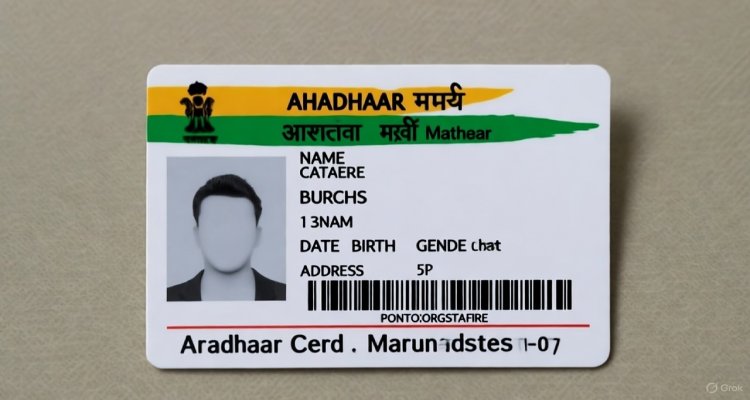UIDAI Sets Up Expert Panel for ‘Aadhaar Vision 2032’ to Future-Proof India’s Digital Identity

UIDAI launches ‘Aadhaar Vision 2032’ expert panel to future-proof India’s digital identity with AI, blockchain, quantum computing, and advanced security technologies.
The Unique Identification Authority of India (UIDAI) has launched a strategic initiative named ‘Aadhaar Vision 2032’ to guide the evolution of Aadhaar, India’s foundational digital identity system, over the next decade. This visionary framework aims to keep Aadhaar at the forefront of technological innovation while ensuring its security, inclusivity, and resilience amid growing cybersecurity challenges.
Context and Background
Since its inception, Aadhaar has revolutionized identity verification in India by issuing a unique 12-digit number to over a billion residents, backed by biometric and demographic data. Established in 2016 as a statutory body under the Ministry of Electronics and Information Technology (MeitY), UIDAI manages Aadhaar enrollment and authentication processes with a strong emphasis on privacy and security. As digital governance and commerce rapidly expand in India, the need to enhance Aadhaar’s technological architecture to meet future demands and global privacy standards has become crucial.
Main Developments: Launch of Aadhaar Vision 2032
To spearhead this ambitious transformation, UIDAI has constituted a high-level expert panel under the chairmanship of UIDAI chief Neelkanth Mishra. The committee includes leading figures from technology, academia, and legal fields, such as UIDAI CEO Bhuvnesh Kumar, AI innovators like Vivek Raghavan, cloud computing pioneer Dheeraj Pandey, and privacy law expert Rahul Matthan.
The core mandate of this committee is to develop the Aadhaar Vision 2032 document, which will provide a comprehensive blueprint for a next-generation Aadhaar infrastructure. The framework will ensure compliance with India’s Digital Personal Data Protection (DPDP) Act and align with emerging global cybersecurity and privacy standards.
Critical technological advancements at the heart of this roadmap include the integration of artificial intelligence (AI), blockchain technology, quantum computing, and advanced encryption methods. These innovations aim to make Aadhaar scalable to meet growing user demand while bolstering resilience against evolving cyber threats. UIDAI envisions Aadhaar as a secure, people-centric digital identity platform that adapts dynamically to the changing digital landscape.
Expert Insights and Public Reaction
Experts recognize this initiative as a vital step in securing India’s digital future. Leading technologists highlight the blend of AI and blockchain as transformative, adding decentralized security layers that could significantly reduce fraud. Privacy advocates appreciate the committee’s focus on aligning Aadhaar with the DPDP Act and international norms, which signals a strong commitment to safeguarding user data.
Public responses reflect trust in UIDAI’s stewardship of Aadhaar but also emphasize the importance of transparency and user control over personal data as the system evolves.
Impact and Implications
The Aadhaar Vision 2032 framework will impact a broad spectrum of stakeholders: millions of Aadhaar users, government agencies reliant on Aadhaar for service delivery, private sector entities leveraging Aadhaar-based authentication, and the larger digital economy ecosystem.
By future-proofing Aadhaar, UIDAI aims not only to retain technological leadership but also to strengthen digital inclusivity by making identity verification more secure and accessible. This initiative is expected to accelerate India’s digital governance capabilities, enhance citizen services, and foster innovation in digital identity applications.
Conclusion
UIDAI’s formation of an expert panel for Aadhaar Vision 2032 marks a decisive move towards sustaining and enhancing one of the world’s largest digital identity platforms. By embracing advanced technologies and prioritizing privacy and security, Aadhaar is set to remain a critical pillar of India’s digital economy and governance for the next decade. This strategic foresight underscores India’s commitment to maintaining a resilient, scalable, and citizen-focused digital identity ecosystem.
Disclaimer: This article is based on official announcements and expert insights available as of November 2025 and aims to provide an informative overview without specific projections.









